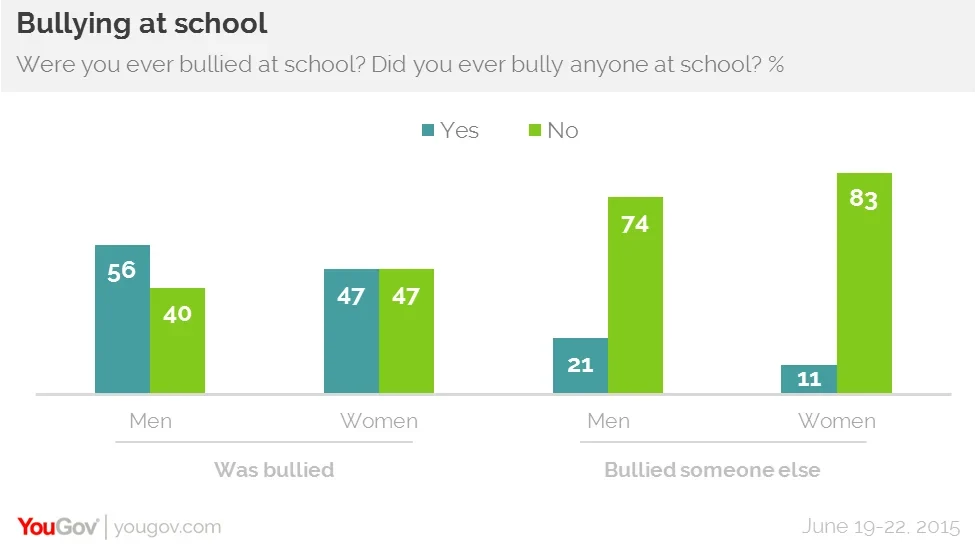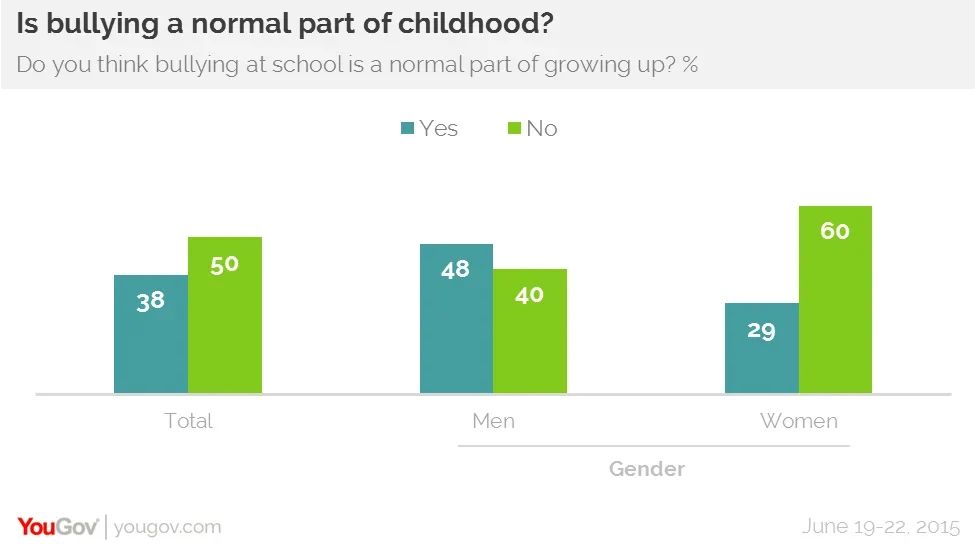Men are more likely than women to have been bullied – and to have been bullies
A new study has shown that the effects of bullying at school can last long after graduation, with the former victims of bullying suffering from higher rates of depression as adults than everyone else. Even controlling for other factors, such as family history of depression and economic background, people who were bullied at least once a week as children were over twice as likely to suffer from depression as adults.
Research from YouGov shows that 51% of Americans say that they were bullied at school and 16% admit having bullied someone else at school. Men are more likely than women to have either been bullied or to have done the bullying. 56% of men say that they were bullied, compared to 47% of women while 21% of men say that they bullied someone else while only 11% of women admit to having been a bully.

Of the 51% of Americans who say that they were bullied, 62% say that it lasted for 2 or more years. Among the 16% who said that they bullied someone else as a child, 77% of them say that they now feel guilty for having been a bully. Only 18% say that they aren't remorseful for their actions at school.
Half the public say that bullying at school isn't just a normal part of growing up, but just over a third (38%) do think that bullying at school is normal. The gender divide persists on this, as 48% of men say that bullying is normal during childhood (while 40% disagree), but among women only 29% believe that it is normal and 60% think that it is not.

While women are less likely to have been bullied at school, or to regard it as a normal part of childhood, they are more likely than men to report having been bullied as an adult. 30% of women say that they have been bullied as an adult compared to 21% of men.
Full poll results can be found here and topline results and margin of error here.










